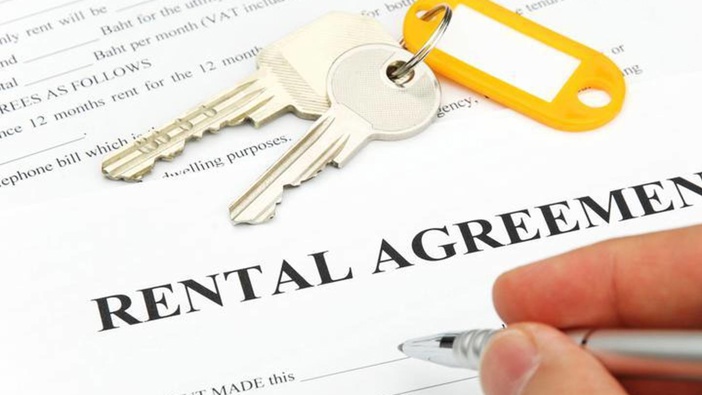Follow
the podcast on


If you're a renter, it's jolly good news. At least a third of people taking out new tenancies this year are paying less rent than the tenants who lived there before them.
According to the Ministry of Housing and Urban Development, for new tenancies since January 1, 30% were paying weekly rent lower than the initial weekly rent for the previous tenancy at that address. The data used a 500-day limit between the start of the last tenancy and the start of the newest tenancy, which gave a sample of around 33,000 homes, so, you know, a fairly sizable sample.
Trade Me Property has also seen rents fall as supply outstrips demand. According to Trade Me Property, after a period of record highs in 2024, we're now seeing a market that offers more options and less competition, which is driving prices down in most regions.
Nationally, rental listings on Trade Me Property were up 13% year on year in July, while demand fell 19%. Wellington recorded the largest drop. The median weekly rent there fell $50 or 7.7% to $600 compared with July of 2024. Wellington also saw a 27% rise in rental stock and a 6% fall in demand. Auckland's median weekly rent dropped $20 to $660 in July. And most other regions also saw rents go down, except for Southland, Nelson-Tasman and Taranaki. Southland hit a record high of $500 a week – what's happening in Southland? Taranaki climbed 3.3% to $620, so you'd be paying more for rent than you would be if you were renting in Wellington.
So what does all that mean for landlords? Yesterday, I read an email from Bob, which in part said the tax cuts should never have happened except for the most needy. And I received a text in response saying, well, remind Bob, Kerre, that are rents not the lowest they've been for years? Is that not a direct result of the tax clawback for landlords? Well, I don't know, is it? Is it the fact that landlords can now get the rebate and claim for expenses? Does that mean that is being passed on to tenants, or is it simply that supply is outstripping demand, and when supply outstrips demand, prices fall, which is a fundamental principle of the law of supply and demand. Is that what it is?
There are more places to rent available, new builds, perhaps people holding on to their homes but renting them out while they either go overseas or go into a retirement village or whatever it is they've decided to do, holding on to the homes and renting them out while they wait for the property market to recover. I don't know.
The texter says it's because of the tax clawbacks for landlords and that's why we've seen the drop in rent. I'd love to know from landlords if that is in fact the case. And I'd love to hear from renters. Are you able now to do some horse trading over the rent? Instead of taking a number and going to the back of a very, very long line, waiting to get into see an overpriced piece of mouldy tat, are you now being able to be a bit more selective? And if you're in a place you like, are you able to negotiate for a better rent? Now, when your lease comes up, you say, yes, I'd like to stay here, but given the state of the property market, could I pay a bit a little bit less?
I also wonder whether when times got tough, the part-time landlords, the ones that been felt the pressure to get onto the property ladder and save for your retirement, thanks to all the ads we played, buying up investment properties. It wasn't really your bag, it wasn't really your thing, you just thought you had to do it, otherwise you'd be missing out. Is that another reason that the part-time landlords got out of the business, leaving only the professional landlords there now?
Take your Radio, Podcasts and Music with you









